
Embroidery Rediscovered
 Danielle Clough
Danielle Clough
Born and raised in Cape Town, South Africa, Danielle is a well known embroidery designer. She creates impactful and bright upscaled embroideries, using thick bold threads to create images of flowers, birds and portraits of people.
Some of her most unique pieces are embroidered directly onto vintage badminton and tennis rackets. Starting as a love of collecting vintage finds, Danielle found that these rackets were the ultimate canvas for her embroideries, using the painted colours of their handles to inspire her colour palettes.
Studying art direction and graphic design, Danielle describes herself as a true multimedia artist, using a mix of found materials, interesting textiles and unusual bright colour mixes to bring out the beauty and depth to her embroideries.
This series “What a Racket” is mostly inspired by nature, using flowers and birds local to South Africa as her imagery inspiration.
We love this playful take on the delicate art of embroidery, transforming the vintage sports equipment into truly special art pieces.
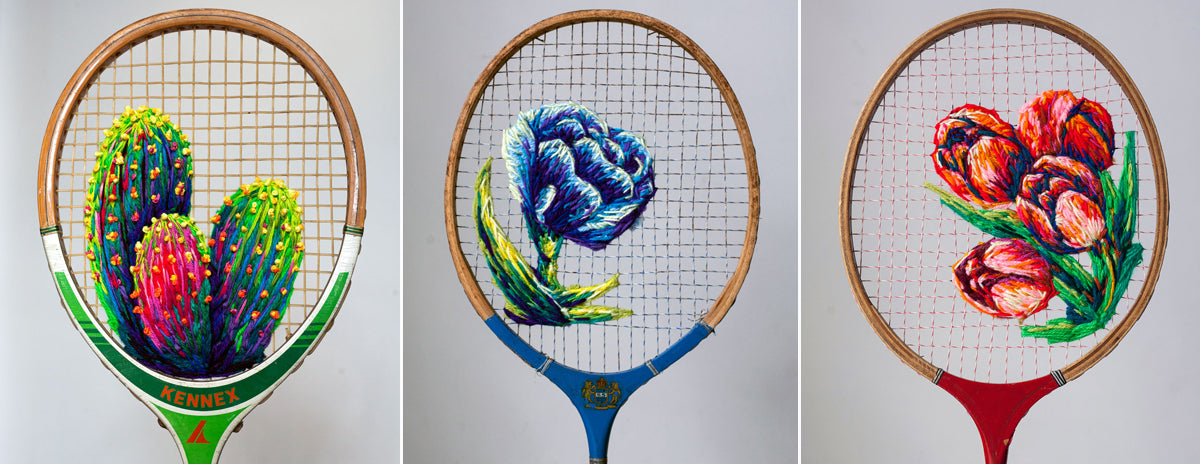
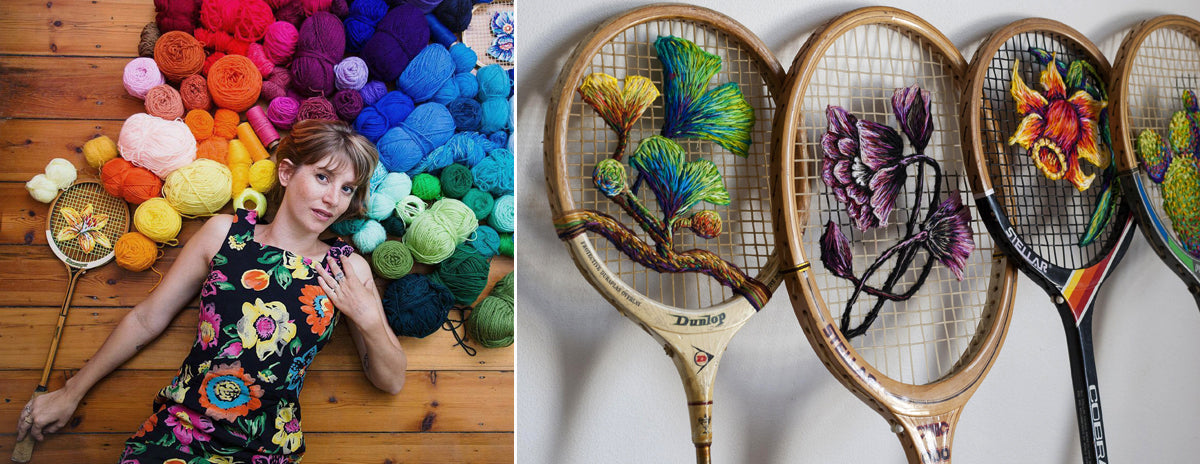
I am the most inspired when I am doing something outside of my routine and looking at things that I can be resourceful with; new tools, colours or materials (like finding a chunky bright pink wool, or seeing a broken fence and stitching it up).
Visit her website here or follow her on Instagram
 Francesca Colussi
Francesca Colussi
Textile artist Francesca Colussi started embroidering patterns onto found photographs when she first discovered a local vintage shop down the road from her in North Wales. Falling in love with the nostalgic feel of the postcards, Francesca began to create new layers with thread, using the black and white imagery as a base for her often colourful patterns.
Some of her work is abstract, creating “quilt” like patterns on the postcards, while others are almost a pixeled interpretation of the postcard itself. Mixing floral motifs with landscapes, or creating bold backdrops for black and white portraits, her embroidered art brings new life into these vintage scenes. Whatever the pattern, Francesca is giving the forgotten a new lease of life with her not-so-traditional thread-work.
Still sourcing her photographs and postcards from the original shop, Francesca also finds vintage papers, postcards and more on Ebay and Etsy or from visiting vintage fairs. In a recent interview with the Guardian, she tells them she “has yet to discover a forgotten romance in the messages on the back of her postcards: “I don’t know if it’s a British thing, but mostly they write about the weather.”
Follow Francesca on Instagram where she posts all her postcard artwork (front & back) and we’re sure you’ll be just as enchanted by these glimpses into the past as we are.


It is a sort of conversation with the past in the images, like lifting a layer of dust and letting the colour through, adding another chapter.
Visit her website here.
 Charlotte Bailey
Charlotte Bailey
Brighton based embroidery artist Charlotte Bailey was inspired by the Japanese mending technique of Kintsugi: the art of repairing broken porcelain or ceramics with gold to enhance the damage and honour their beauty. Using this concept, Charlotte merges her embroidery expertise with traditional porcelain mending, creating patchwork pieces that are repaired with golden threads and beads.
Using a cross between embroidery and darning, Charlotte carefully covers the broken pieces with fabric, acting as the base for the golden threads to be adorned. Mixing beads with embroidery stitching, the end result gives another textural dimension to the pieces, celebrating the “mistakes” instead of concealing them.
Charlotte studied hand embroidery at the Royal School of Needlework and since graduating has worked on some of the most high profile embroidery projects in the UK (she was part of the team that worked on the Duchess of Cambridge’s wedding dress in the Royal School of Needlework’s studio).
We love Charlotte’s unique interpretation of Kintsugi: mixing two ancient crafts together to create new and exciting art pieces.
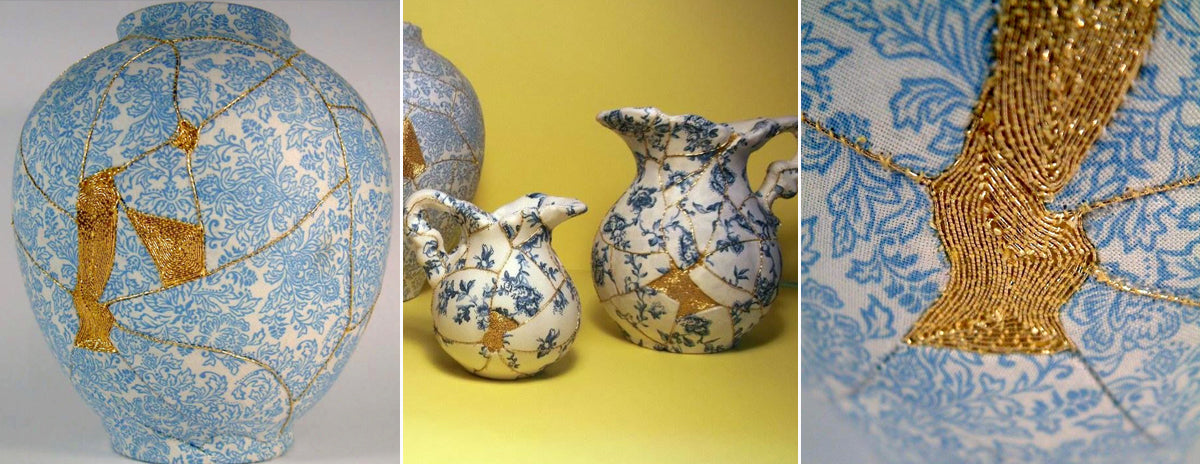
Kintsugi is a rather beautiful ethos that seems so at odds with our modern Western ‘throwaway culture’, that seldom values the craft inherent in an object, or the significant and valuable social and cultural role of the piece.
Visit her website here.


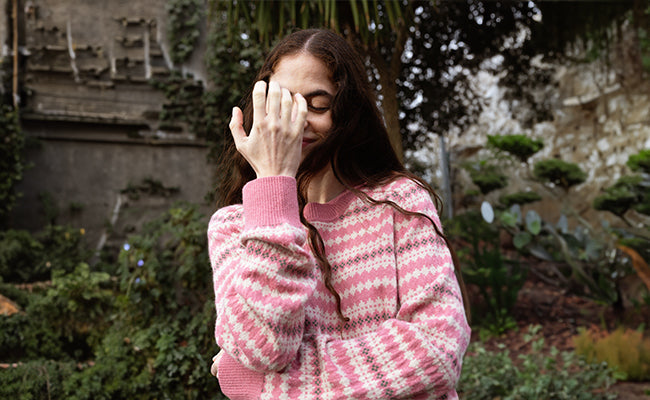
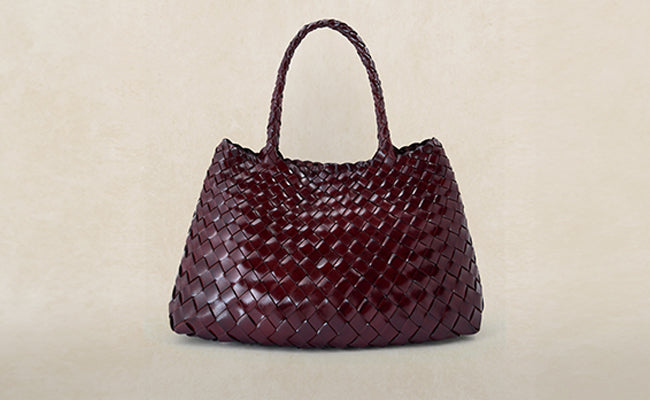
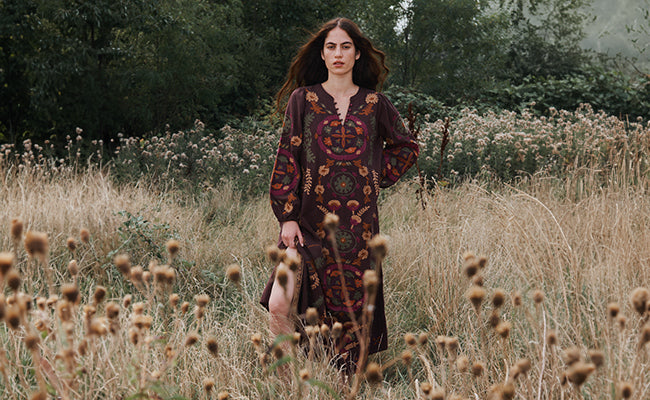
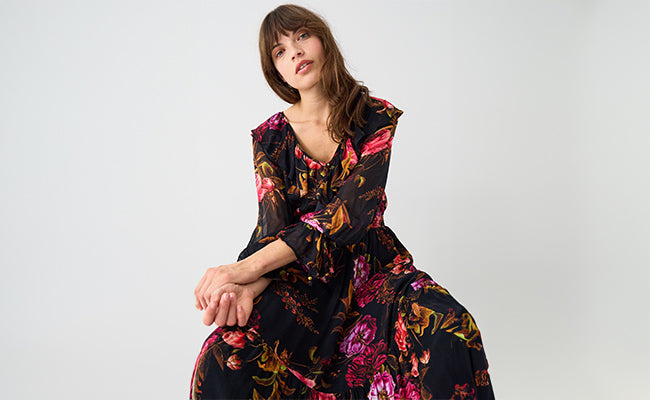
 Danielle Clough
Danielle Clough

1 comment
Very inspiring! It makes me want to do some beautiful embroidery on found items. Everything has a purpose and why not rejuvenate an object that is pleasing to the eye? Thanks
Irram Ahmad
Leave a comment
This site is protected by hCaptcha and the hCaptcha Privacy Policy and Terms of Service apply.